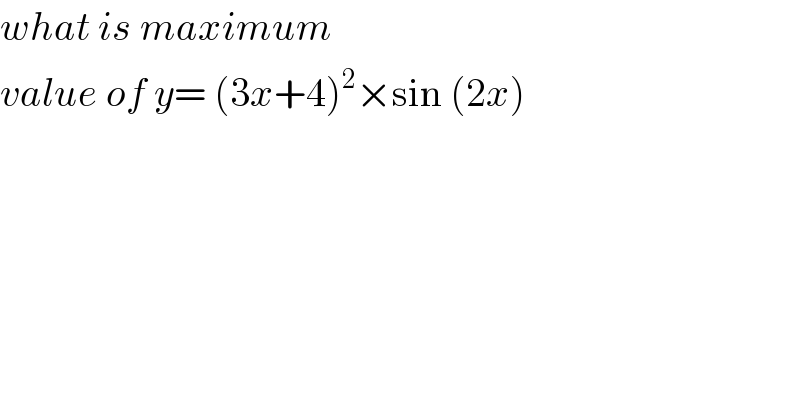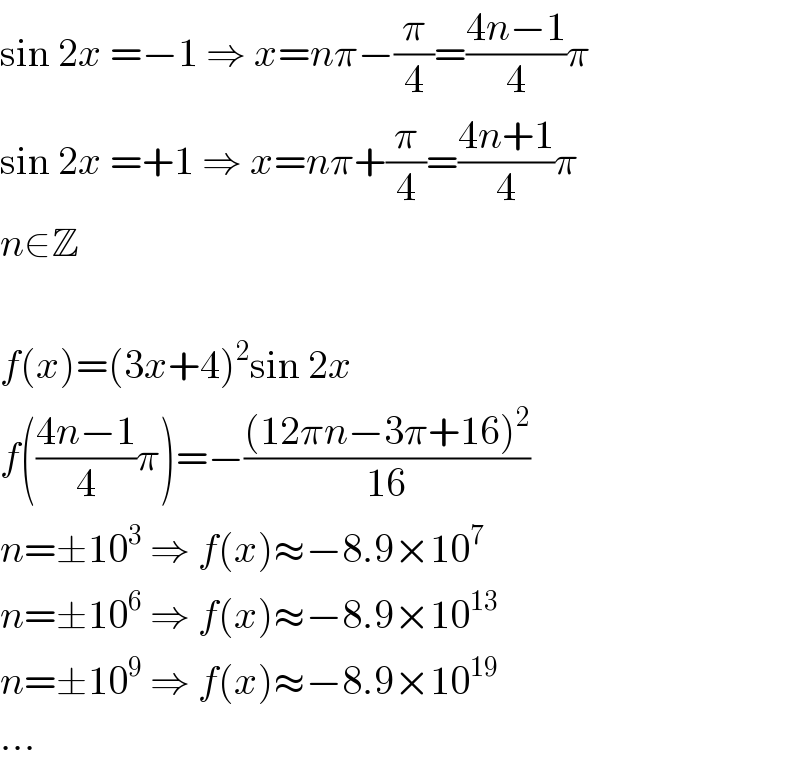
Question and Answers Forum
Question Number 77574 by jagoll last updated on 08/Jan/20

Commented by MJS last updated on 08/Jan/20

Commented by jagoll last updated on 08/Jan/20

Commented by MJS last updated on 08/Jan/20

Commented by jagoll last updated on 08/Jan/20

Commented by MJS last updated on 08/Jan/20

Commented by jagoll last updated on 08/Jan/20

Commented by jagoll last updated on 08/Jan/20

Commented by MJS last updated on 08/Jan/20

Commented by jagoll last updated on 08/Jan/20

